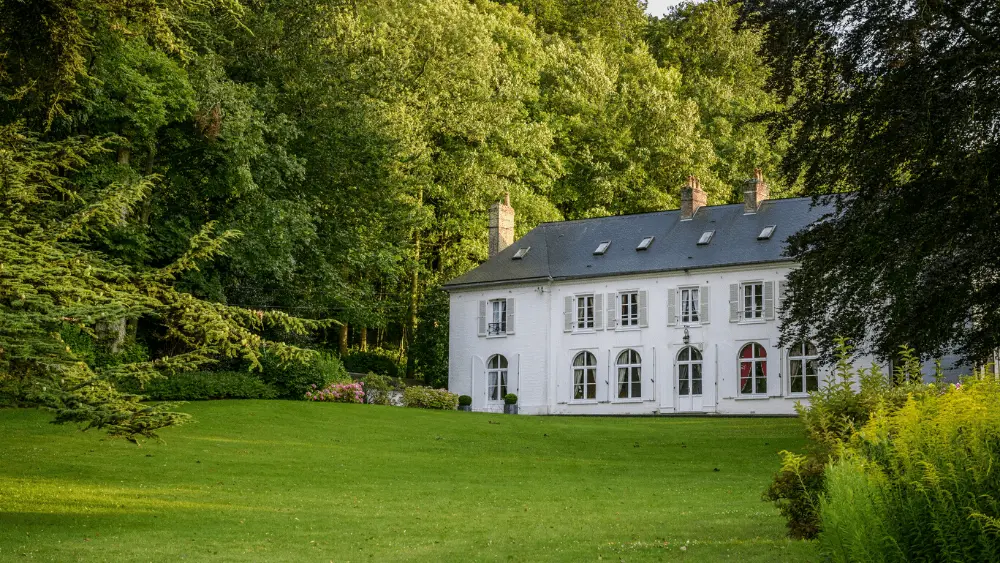
Buying land to build upon can be risky, but ultimately rewarding. To ensure it is the latter, it is essential to do your due diligence on a piece of land so you can build the house of your dreams and avoid surprises. Looking for land to build a home involves a unique set of variables. Here’s how to get started and what to look for along the way to achieve happy results.
Assemble Your Team
While the first people who come to mind to include when looking for a plot of land might include your family and closest friends, the team we are talking about includes a buyer’s agent, your builder/architect, your lender (if you are seeking a loan to pay for the property), an appraiser, and your attorney.
A buyer’s agent who specializes in land purchases will be a great asset because they will know what to look for and can help you research the various properties. Plus, many agents have pocket listings, which are listings that give them the exclusive right to sell and are not advertised anywhere. While most of your land hunting team will not physically accompany you to look at different plots of land, your agent definitely will.
Once you’ve narrowed down the options to a few choice properties, you’ll want your builder or architect to evaluate the land and help you determine the best kind of house to build. The builder will also be able to see the full potential of a piece of land and may suggest options you haven’t considered yet. Lean on their expertise. Jennifer Beecher, a real estate agent with Mossy Oak Properties in Georgia, says. “I‘ve sold waterfront lots on Lake Guntersville in Alabama that many clients, upon first look, thought would be impossible to build upon. With the guidance of an experienced, reputable homebuilder, buyers are capable of building a beautiful home on land that, at first glance, can appear as adverse terrain.”
Your lender will send their own appraiser for the property, but you should also hire an appraiser to help you determine the actual value of the land before making your offer. While a real estate attorney is not required in every state, hiring one to review the contract is in your best interest as they will ensure your rights (including water rights, mineral rights, timber rights, and access rights) are protected. If you do not have an appraiser or attorney, your real estate agent can provide referrals.
Lifestyle and Personal Preference
Create a list of wants and needs and prioritize them. Do you want to live in close proximity to work and your kids’ schools? Do you want to live within 20 minutes of your family? Do you want to raise chickens or create your dream garden? What kinds of recreational activities does your family enjoy? Are there any special needs that must be considered? Write it all down and include your children, then use your own discretion to determine what matters most when looking for a lot of land.
Land Features
Every piece of land will have its pros and cons. Find out what they are and be realistic about how these things will affect you now and in the future. Consider the property’s setbacks, which will determine how close you can build to your property’s border or to a nearby body of water. Find out the city’s or county’s future plans for the area, and who owns the surrounding lots. If the adjacent land is owned by a developer of commercial property, that will impact your lifestyle and the valuation of your property (perhaps positively). You’ll also want to find out if the property is in a flood zone or has poor soil conditions.
Utilities
When you buy an existing home in an already developed community, utilities (or alternatives) will
already be in place. When buying land to build on, you will need to find out if utilities are already connected to the property or if they will need to be added (and how much that will cost). Unless you’re planning to go off the grid, water, waste, power, gas, and phone and internet services are all essentials for modern living. Access to main roads, garbage disposal and recycling, and snow removal are all issues that should be considered in advance.
“In our part of Colorado, there are some places just 45 miles from Colorado Springs where you can buy two acres for only $5,000,” states Colorado real estate agent, Ray Brown. “But just because you can find a lot in a beautiful area that has a low asking price, that doesn’t mean that you’ll save any money if you need to pay large fees to connect to the utility services.”
Zoning
Not all land is zoned for building, so make sure it is zoned for how you want to use it. It may seem counter-intuitive, but it is possible to buy land that you aren’t allowed to build on, or aren’t allowed to build what you want. Some lands are protected, as are some structures. “For example,” explains Elizabeth Weintraub, a top real estate agent in Sacramento, California, “a community within 20 minutes of Sacramento city limits doesn’t permit construction of any structure on parcels smaller than 20 acres.” Check city, county, and state restrictions.
Deed Restrictions and HOAs
In addition to any zoning restrictions, you will want to check with the HOA if you are building in an
established community. They may have their own set of rules you must follow — such as a minimum or maximum size, style, and color of home, landscaping requirements, number and type of vehicles, etc. It is also possible that a former property owner established deed restrictions to limit how all future owners can use the land, so check the master deed before proceeding with a sale.
One final bit of advice is to visit the property on various days and at various times of day. Evaluate traffic and driving times, lighting, sounds, smells, and note any other variations you may spot.
Ready to get started? Begin the process of finding a lot and building a home by visiting NewHomeSource.com to check out thousands of builders and beautiful new homes.

For the last 16 years, Rachel Kinbar has been a writer of articles, blog posts, white papers, essays, infographics, web copy, sales copy, scripts, poetry, lyrics, and more. She has keen research skills that she applies to a wide variety of topics, and she especially loves topics related to design, history, and sustainable living.
 Get to Know Orchard Ridge in Liberty Hill, Texas
Get to Know Orchard Ridge in Liberty Hill, Texas